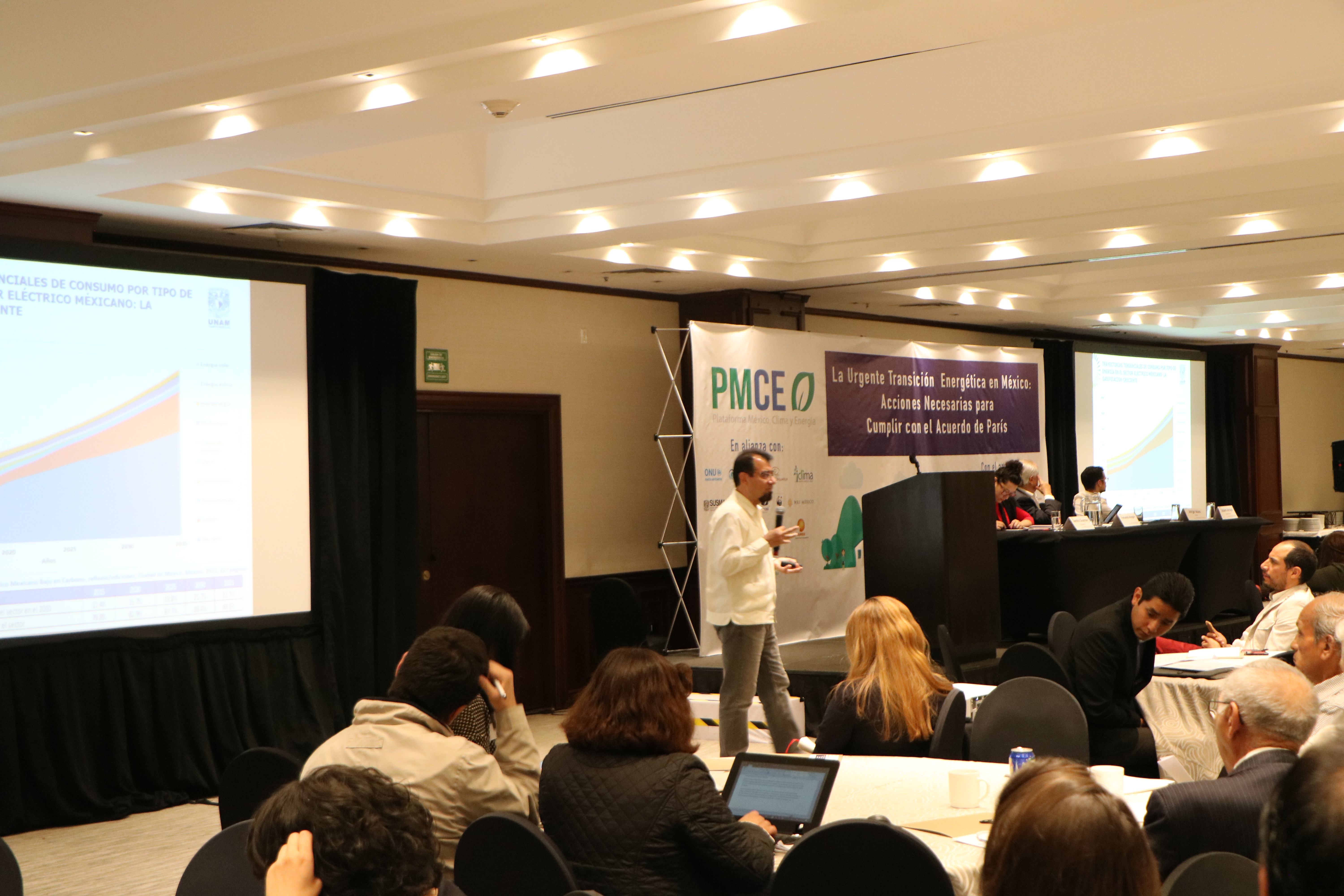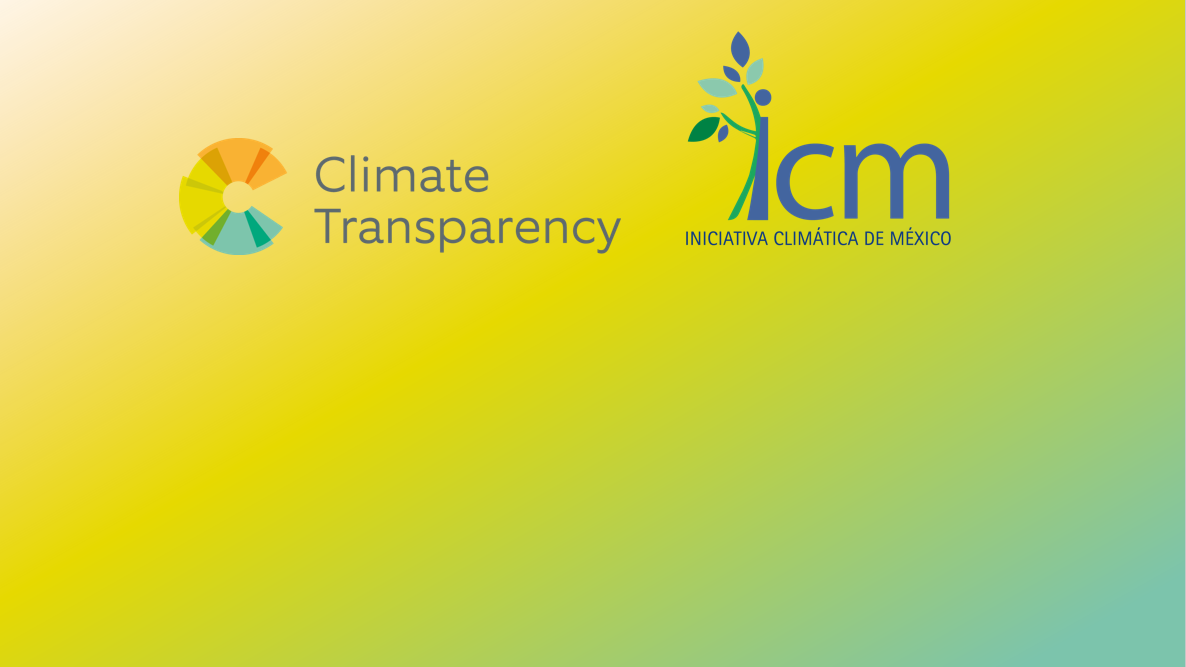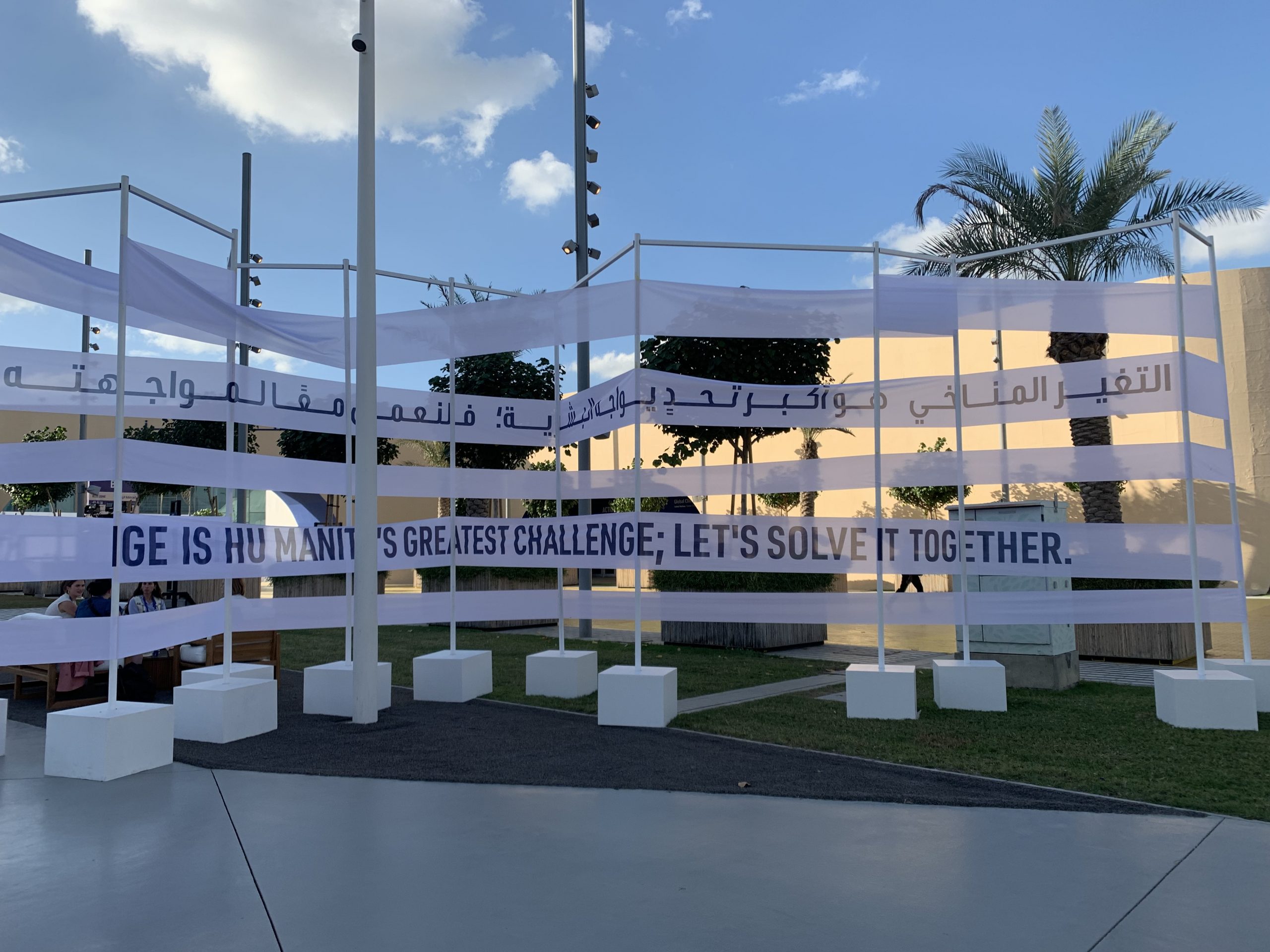Iniciativa Climática de México (ICM), the Climate Transparency Partner in Mexico, together with the Plataforma México Clima y Energía and further NGOs organised “The urgent energy transition in Mexico: necessary actions to comply with the Paris Agreement” forum, which took place on 27 February 2019 in Mexico City.
The objective of the forum was to identify the challenges and opportunities to accelerate the energy transition in Mexico in the face of the growing urgency to limit the increase of the global temperature to 1.5°C, based on the provisions of the Paris Agreement. The multi-stakeholder dialogue was structured along four main panel discussions and five simultaneous workshops, and included more than 200 participants from civil society, academia, researchers as well as representatives of the government.
The opening address was given by Katya Puga, the Undersecretary of Planning and Environmental Policy in Mexico (SEMARNAT), who highlighted the urgency to generate synergies between environmental and energy policies to limit the increase of the global temperature to 1.5°C. Also marked the relevance of the forum to discuss the benefits of accelerating the energy transition by increasing the proportion of renewable energy in the energy mix.
During the first panel session, actions that need to be strengthened in Mexico to implement the Paris Agreement have been discussed. The input for this session has been based on an analysis of the GHG emissions trend globally and in Mexico. In both cases, the current scenario continues to show an extreme dependence on fossil fuels. Therefore, the experts noted the urgency to move forward towards a deep and rapid decarbonisation of the energy system and the importance of increasing renewable energy penetration and mobilising green finance, among other measures.
The second panel focused on lessons learned from energy transitions in the United Kingdom, Germany, China and the State of California. Strategies recommended to the Mexican stakeholders included various legal and institutional adjustments as well as enhanced coordination and dialogue between different levels of government and economic sectors.
Latin America’s experience of the energy transition was the topic of the third panel, during which the Center for Integrated Studies on Climate Change (Centro Clima) from Brazil, the Foundation for the Environment and Natural Resources (FARN) from Argentina and the Iniciativa Climática de México (ICM), three partners of Climate Transparency, discussed the important gaps that exist between emissions trends in those three countries and commitments made in the Paris Agreement. A series of country policy papers (Argentina, Brazil, Mexico) as well as a joint synthesis paper entitled “Accelerating the Energy Transition in Latin America” served as a basis for further discussions. The conclusion of the panel was that climate needs to be more transparent in the decision-making process and that the social dimension needs to be considered in the energy planning.
The fourth panel placed emphasis on the importance of envisioning a Mexican Electricity System based on a renewable energy matrix that would lead Mexico to complying with the Paris Agreement and position the country on the temperature trajectory recommended by the IPCC. The integration of renewable energy will lead to increased social welfare, responsible consumption and democratise access to energy.
Participants of the five simultaneous workshops discussed subjects relevant in the context of the current energy transition and Mexico’s climate change commitments such as: 1) Energy poverty, 2) Co-Benefits, 3) Carbon budgets (where the Brown to Green Report and the Mexico’s Country Profile served as primary inputs), 4) Electricity markets, 5) Planning the National Electricity System. The dialogue between specialists and stakeholders identified a series of policies and instruments that should be promoted by the state to accelerate a transition towards a low carbon economy.
Materials from the Event:
Policy Papers on Energy Transitions in Latin America:
The Brown to Green Report 2018:


















